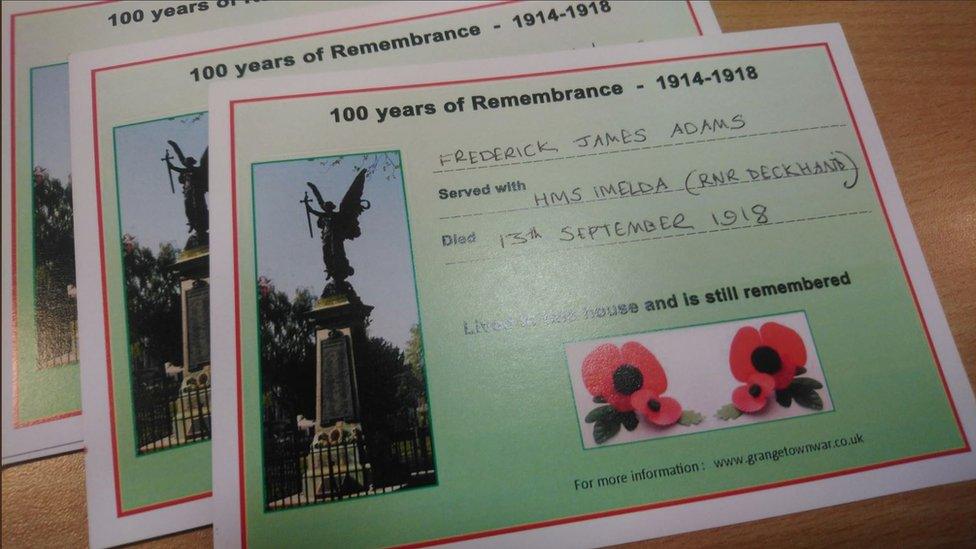Field Marshal Haig 1920s silk poppies found in time for Armistice Day
- Published

Bernie Axtell was chief steward of the branch of the Royal British Legion in Street, Somerset
A box of poppies believed to date back almost 100 years has been found in an old suitcase.
Bernie Axtell found them while looking for paperwork in his home in Cardiff on Sunday, a week before Armistice Day.
The 77-year-old was given them by his friend Vic Luckhurst about 30 years ago while working for the Royal British Legion in Street, Somerset.
"I had put them away for a rainy day. Something up there made me open that case on Sunday," he said.
The poppies are made from red fabric, have a thin metal stem and feature the words Haig's Fund or H.F. in the centre.
Red silk poppies were first sold by the Royal British Legion in 1921, with the funds raised used to help veterans with employment and housing.
That year, Field Marshal Douglas Haig set up the Haig Fund to support veterans - Haig Fund or H.F. was printed on the middle of each poppy.
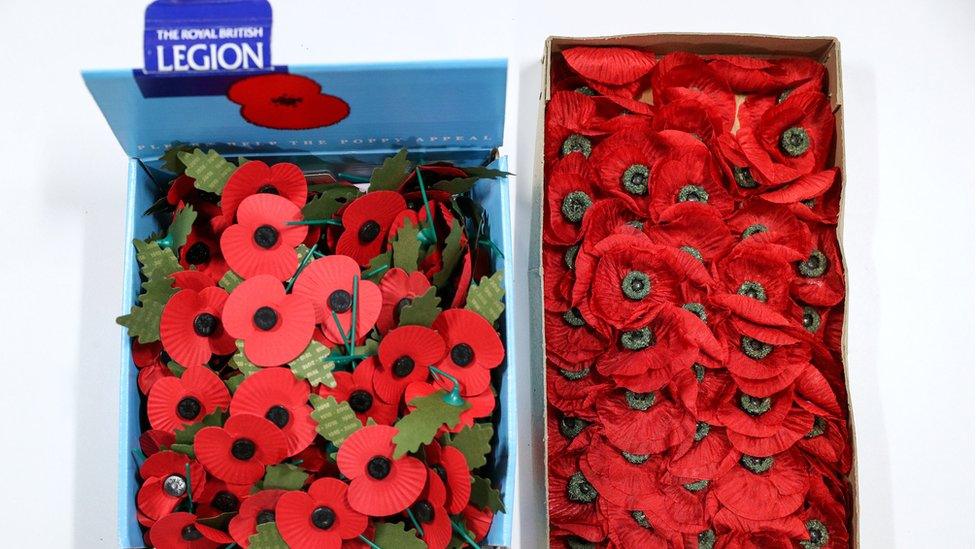
Past and present: How old and new poppies compare
Mr Axtell said he could have easily thrown the box away when he and his wife moved from Somerset to Cardiff in 2010.
After discovering the box, he took them to the Field of Remembrance at Cardiff Castle and staff at the Legion's nearby drop-in centre realised the significance of the box.
They will now be taken to the Cenotaph by Royal British Legion representatives on Sunday.
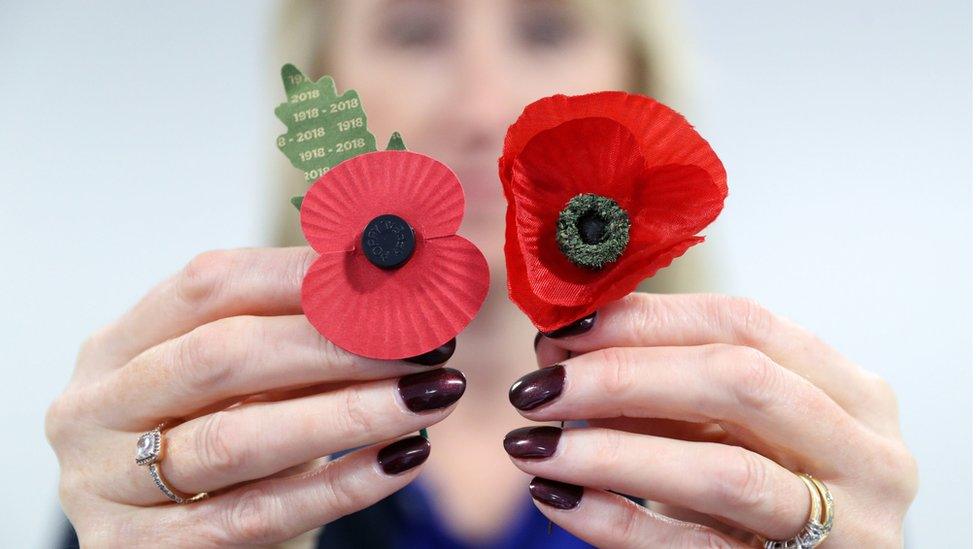
Mr Axtell said: "When he [Mr Luckhurst] gave me the box he said 'I want someone to have them who will know what to do with them'.
"I didn't know at the time what to do so I kept them in an old suitcase. I don't know if he knew the relevance of them.
"It is awe inspiring to think they will be at the Cenotaph. It pleases me beyond all thoughts. I said to Vic that I would find something special to do with them."
Claire Rowcliffe, director of fundraising for the Royal British Legion, said: "This amazing discovery of poppies from the early 1920s reminds you of the significance of remembrance and the important and vital work the Royal British Legion did in the aftermath of the First World War and still does today for those who served and sacrificed.
"We are so pleased we can put them into safe keeping for the appreciation of future generations."

The Armistice 100 years on

Long read: The forgotten female soldier on the forgotten frontline
Video: War footage brought alive in colour
Interactive:, external What would you have done between 1914 and 1918?
Living history: Why 'indecent' Armistice Day parties ended

- Published10 November 2018
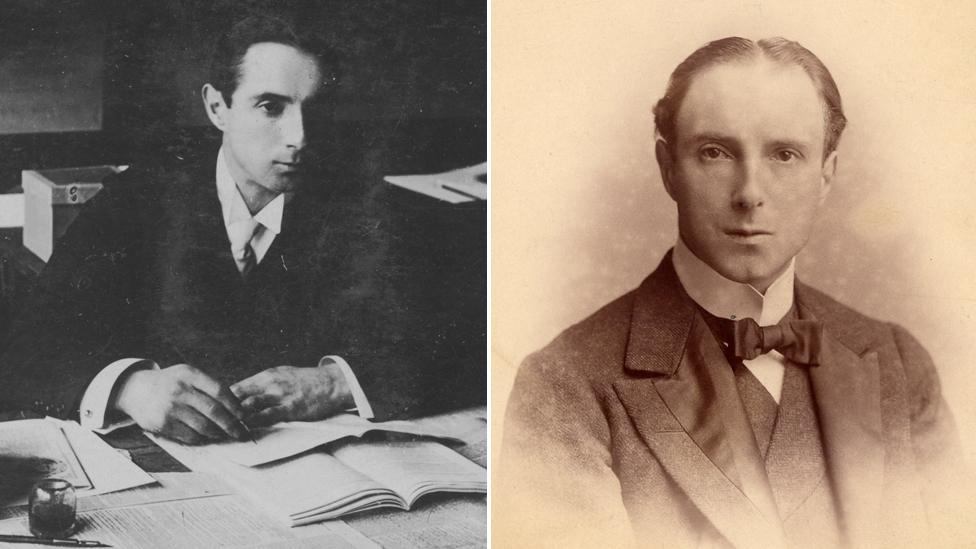
- Published10 November 2018
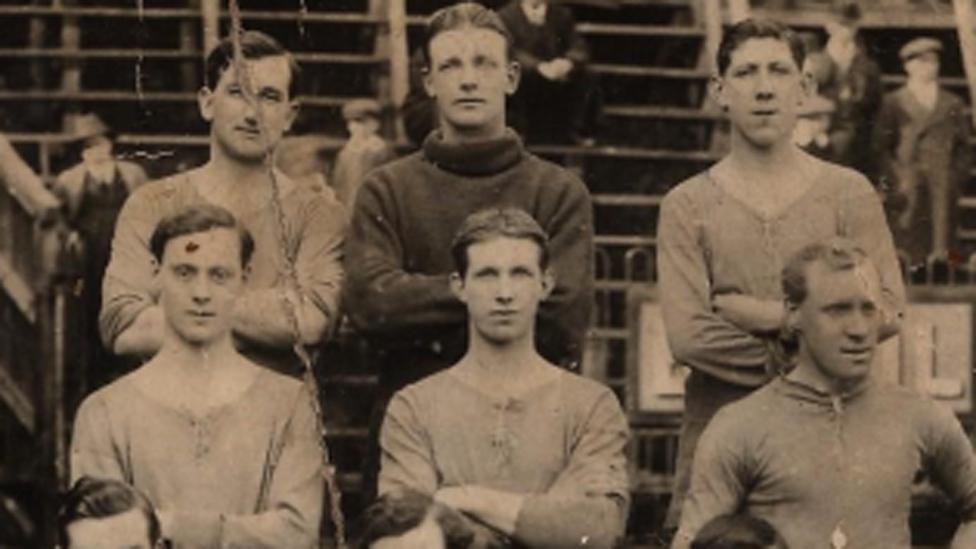
- Published9 November 2018
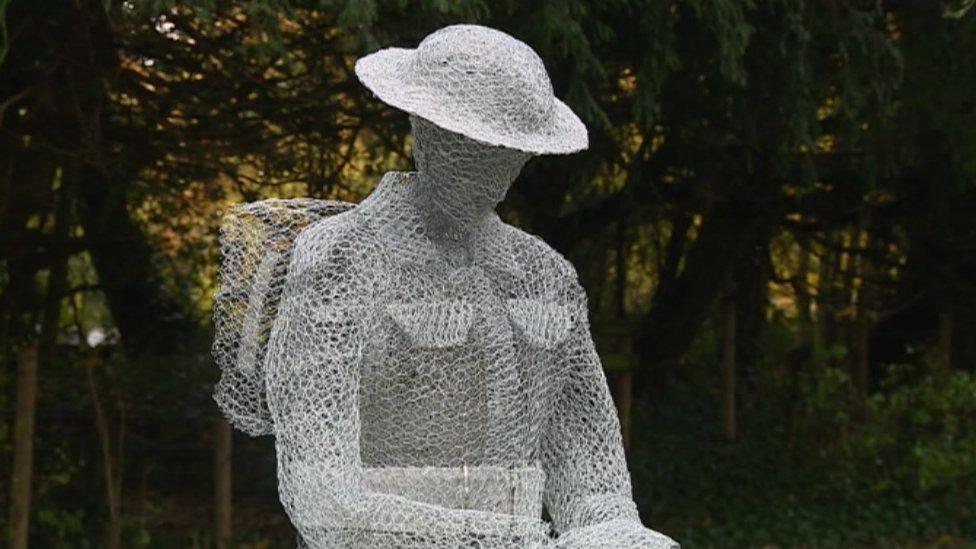
- Published9 November 2018
